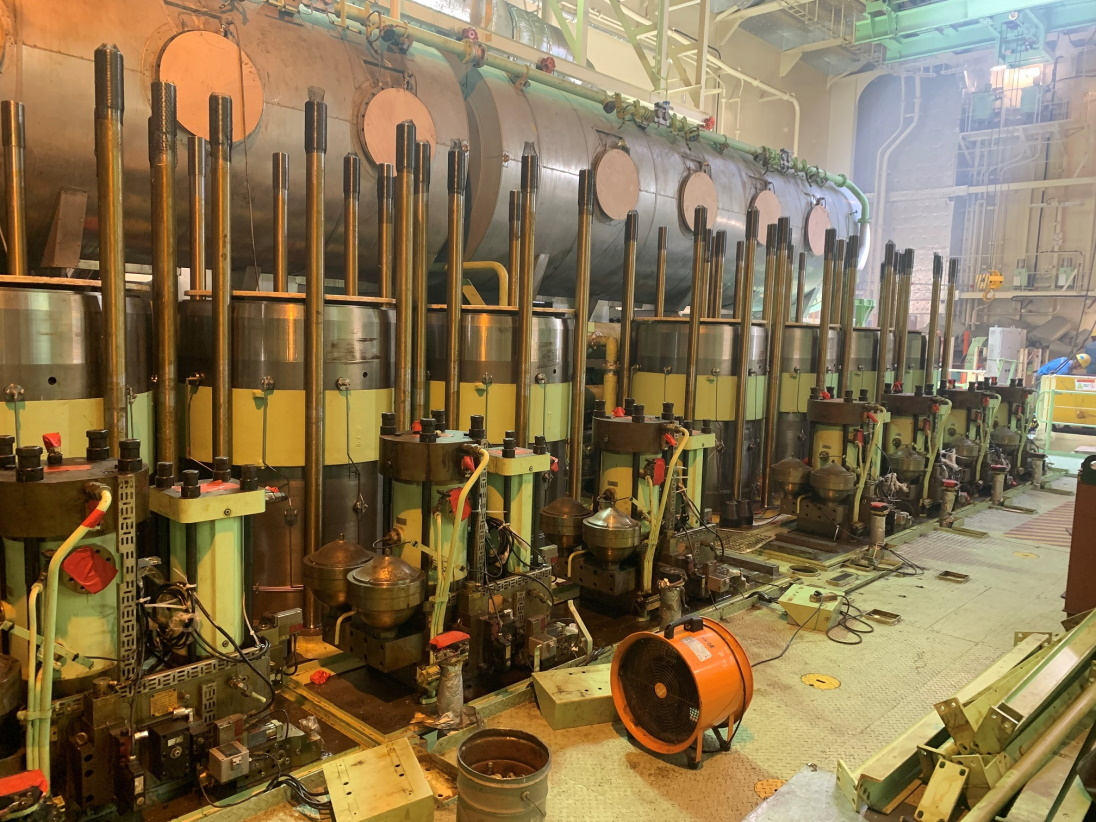MAN Energy Solutions has announced the successful retrofit of the main engine of the ‘Maersk Halifax’ to a dual-fuel MAN B&W ME-LGIM unit. MAN PrimeServ, MAN Energy Solutions’ after-sales division, carried out the work, the first such project globally involving a VLCV (Very Large Container Vessel).

The 15,000 teu vessel entered service in 2017 and was originally powered by an MAN B&W 8G95ME-C9.5 prime mover. The retrofit to an 8G95ME-LGIM Mk10.5 engine enables the Maersk Halifax to operate on green methanol, making it possible to reduce its CO2 emissions by 90%.
The retrofit also included an upgrade to the vessel’s engine-control system to MAN Energy Solutions’ latest Triton system. Following the completion of sea-trials, Maersk Halifax has returned to operation and is now servicing A.P. Moller – Maersk’s (Maersk) Trans-Pacific trade.
Leonardo Sonzio, Head of Fleet Management and Technology at Maersk, said: “Since we set the ambitious climate goal of reaching net zero emissions by 2040, we have explored the potential in retrofitting existing vessels with dual-fuel engines. In the coming year, we will take learnings from this first conversion of a large vessel. Retrofits of existing vessels can be an important alternative to newbuilds in our transition from fossil fuels to low-emission fuels.”
The Halifax retrofit is expected to serve as a blueprint for future retrofit projects. Indeed, Maersk has already placed a preorder for MAN PrimeServ to convert an additional 10 vessels from its fleet to methanol operation.
Michael Petersen, Senior Vice President and Head of PrimeServ Denmark, praised the project collaboration with Maersk and Asia Pacific and said: “Retrofits are one of the five growth areas identified in MAN Energy Solutions’ ‘Moving Big Things To Zero’ strategy, enabling shipowners to drastically reduce CO2 emissions without having to commission newbuilds. Retrofitted engines are able to switch between fuels with minimal disruption, flexibility that is crucial for maintaining operational efficiency and reliability. At PrimeServ, we estimate that more than 4,000 existing marine engines have the potential to be converted to operation on green fuels like e-methanol and e-methane.”
Speaking at a recent event at Asia Pacific Dockyard in Zhoushan to mark the project’s conclusion, Sarath Prasannan, Senior Vice President and Head of Region Asia Pacific, said: “This groundbreaking project marks a pivotal moment in the shipping industry’s journey towards decarbonisation. We hope that China’s policies and infrastructure will continue to foster an environment where shipyards can carry forward this commendable work.”


